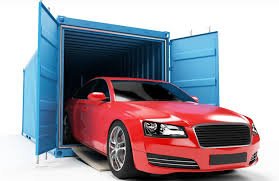
In the vibrant city of Dubai, where luxury cars gleam under the desert sun and automotive enthusiasts roam the streets, understanding the complexities of car import regulations is paramount. Whether you’re a resident looking to bring in your dream car or a business seeking to expand its fleet, navigating Dubai’s car import regulations can be a frightening task. Fear not, for we’re here to unravel the complexities and guide you through the process step by step.
Understanding Dubai’s Car Import Regulations
Dubai’s car import regulations are overseen by the Roads and Transport Authority (RTA) and Dubai Customs, who ensure compliance with the legal framework governing vehicle importation. To navigate this complex process, importers must obtain essential documents such as customs clearance papers, vehicle registration, and insurance. However, import duty and taxes add another layer of complexity, requiring careful financial planning to avoid surprises.
Despite the taxing nature of Dubai’s car import regulations, a clear understanding of the regulatory bodies, legal framework, required documents, and financial obligations empowers importers to navigate the process effectively. With thorough preparation and attention to detail, importers can overcome challenges and successfully bring their vehicles into Dubai’s dynamic automotive market.
Compliance and Licensing Procedures
Navigating Dubai’s car import regulations requires fascinating attention to detail and adherence to specific procedures by some Car Experts. Here’s a step-by-step guide to help you comply with import regulations seamlessly.
- Preparing Necessary Documents:
Before diving into the import process, ensure you have all required documents in order. This includes customs clearance papers, vehicle registration documents, and insurance certificates.
- Applying for Import Permits/Licences:
Obtain the necessary permits and licences from relevant authorities, such as the RTA and Dubai Customs. These permits are essential for legally importing vehicles into Dubai and must be secured before proceeding further.
- Inspection and Verification Processes:
Once your paperwork is in order, your vehicle may undergo inspection and verification to ensure compliance with safety and quality standards. Be prepared to present your vehicle for examination as part of this process.
- Paying Applicable Fees and Taxes:
Importing vehicles into Dubai comes with financial obligations, including import duty and taxes. Be sure to budget accordingly and pay all applicable fees to facilitate the smooth entry of your vehicle into the city.
- Tips for Ensuring Smooth Compliance:
To navigate the import process successfully, consider the following tips:
- Double-check all documentation to avoid errors or omissions.
- Stay informed about any updates or changes to import regulations.
- Seek professional assistance if needed, especially for complex cases or unfamiliar procedures.
- Maintain open communication with relevant authorities throughout the process to address any issues promptly.
By following these steps and tips, you can ensure smooth compliance with Dubai’s car import regulations and avoid common pitfalls along the way. Remember, attention to detail and proactive planning are key to a successful importation process.

Types of Vehicles Permitted for Import
Dubai’s car import regulations outline specific criteria for determining which vehicles are eligible for importation into the city. Understanding these criteria is essential for importers seeking to bring vehicles into Dubai legally. Here’s what you need to know:
- Eligibility Criteria:
Dubai imposes restrictions on the age, specifications, and emissions standards of vehicles eligible for importation. Generally, newer vehicles that meet current safety and environmental standards are more likely to be permitted for import.
- Exceptions and Special Cases:
While there are general eligibility criteria, Dubai may make exceptions for certain vehicles, such as classic cars or specialty vehicles. Importers should research any special provisions or requirements that may apply to their specific vehicle type.
- Restrictions on Certain Vehicle Types:
Dubai’s car import regulations may restrict the importation of certain vehicle types, such as right-hand drive models or vehicles with salvage titles. Importers should be aware of these restrictions and ensure compliance with applicable regulations.
- Documentation Requirements:
Importing vehicles into Dubai requires the submission of specific documentation, including customs clearance papers, vehicle registration documents, and insurance certificates. Ensuring all necessary paperwork is in order is essential for a smooth importation process.
- Compliance with Safety and Quality Standards:
Imported vehicles must comply with Dubai’s safety and quality standards to ensure they meet the city’s requirements for roadworthiness. This may involve undergoing inspection and verification processes to confirm compliance.
By understanding the types of vehicles permitted for importation into Dubai and ensuring compliance with regulatory requirements, importers can navigate the importation process effectively and bring their vehicles into the city legally and safely.
Expert Care for Imported Cars – Trust Our Garage for Quality Service
Looking for expert care for your imported car in Dubai? Look no further than our Car Garage in Dubai! We specialize in providing top-notch services tailored specifically for imported vehicles. From routine maintenance to complex repairs, our skilled technicians have the knowledge and expertise to keep your prized import running smoothly and efficiently.
With state-of-the-art equipment and a commitment to excellence, we ensure that your car receives the highest level of care and attention it deserves. Trust us to keep your imported vehicle in pristine condition and experience the difference of quality service at our garage. Schedule an appointment today and let us take care of all your imported car needs!

Common Challenges Faced During Importation Process
Importing vehicles into Dubai can be a complex and challenging process, fraught with potential risks and hurdles. Here are some common challenges importers may encounter:
- Regulatory Compliance:
Meeting the rigid regulatory requirements set by Dubai’s authorities can be frightening. Importers often struggle to navigate the complex import regulations, including obtaining permits, licences, and complying with documentation standards.
- Customs Clearance:
Clearance through customs can be a time-consuming and intricate process. Importers may encounter delays due to incomplete or inaccurate documentation, customs inspections, or changes in regulations, leading to additional costs and disruptions in the importation timeline.
- Shipping and Logistics:
Coordinating the logistics of shipping vehicles to Dubai involves various complexities, such as selecting reliable carriers, arranging transportation from ports to final destinations, and ensuring compliance with shipping regulations. Importers may face challenges in managing these logistical aspects efficiently.
- Financial Considerations:
Importing vehicles into Dubai incurs significant financial costs, including import duties, taxes, shipping fees, and administrative expenses. Managing finances and budgeting for these expenses can be challenging, particularly for small businesses or individual importers.
- Quality Control:
Ensuring imported vehicles meet Dubai’s safety and quality standards is crucial. However, importers may encounter discrepancies in the condition or quality of vehicles upon arrival, requiring additional inspections or repairs to meet regulatory requirements.
- Language and Communication Barriers:
Language differences and communication barriers can complicate interactions with government agencies, customs officials, and shipping companies. Misunderstandings or miscommunications may occur, leading to delays or errors in documentation.
- Market Demand and Competition:
Importers must also contend with market demand and competition within Dubai’s automotive industry. Sourcing vehicles that align with consumer preferences and offer competitive pricing can pose challenges in a dynamic market environment.
- Legal and Compliance Risks:
Non-compliance with import regulations can result in legal consequences, fines, or seizure of imported vehicles. Importers must stay informed about changes in regulations and ensure strict adherence to compliance requirements to mitigate these risks.
Navigating these challenges requires careful planning, attention to detail, and proactive management. Importers may benefit from seeking professional assistance, conducting thorough research, and maintaining open communication with relevant authorities and stakeholders throughout the importation process.
In conclusion, mastering Dubai’s car import regulations is essential for individuals and businesses seeking to navigate the dynamic landscape of the city’s automotive industry. By understanding the regulatory framework, complying with licensing procedures, importers can embark on their journey with confidence. While challenges may arise along the way, perseverance and strategic planning will ultimately pave the path to success in importing cars into Dubai’s thriving market.





